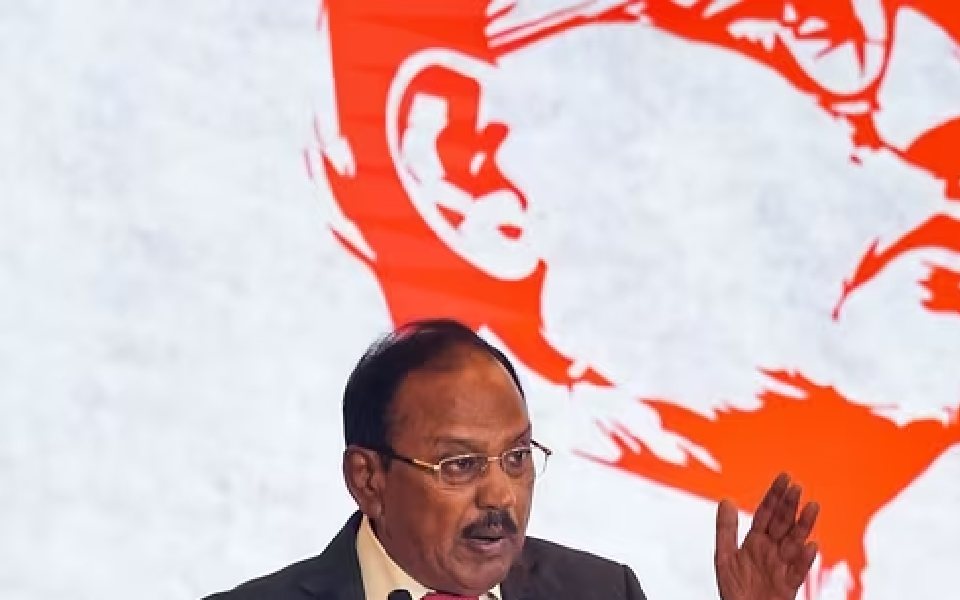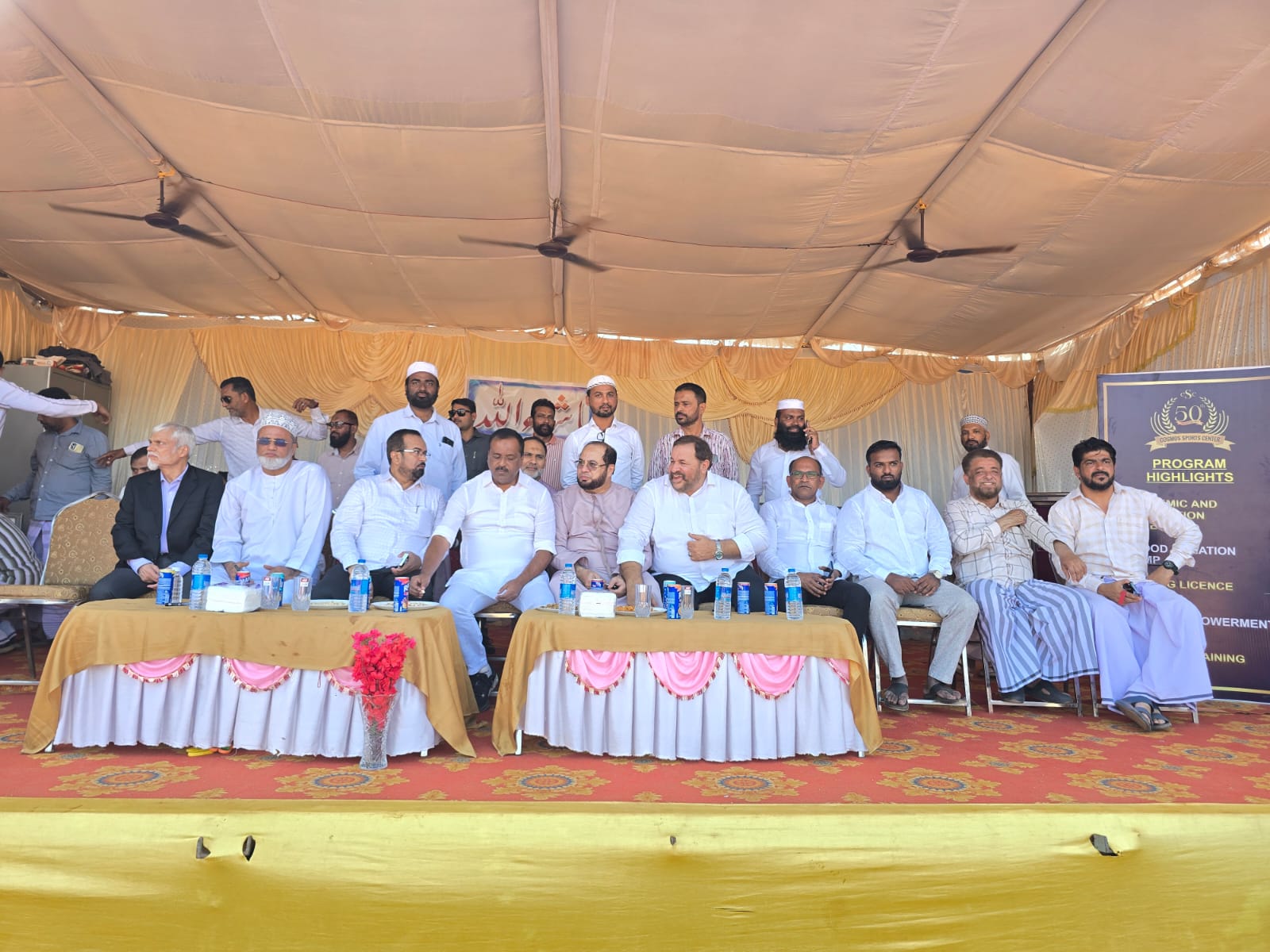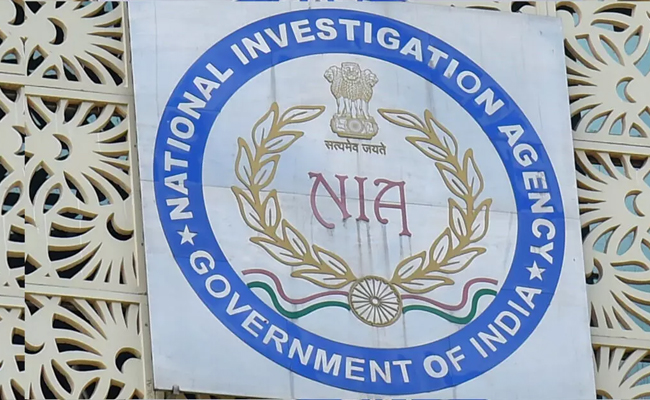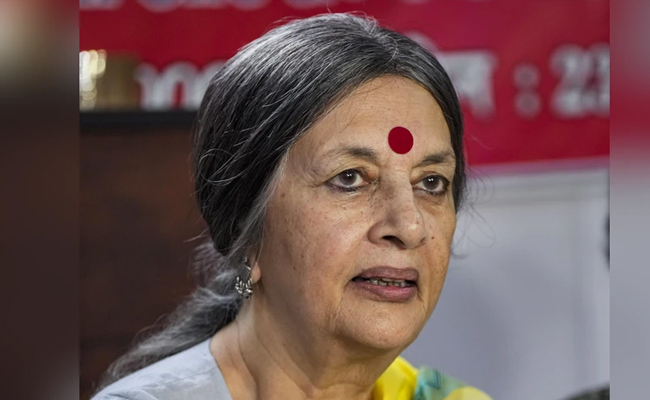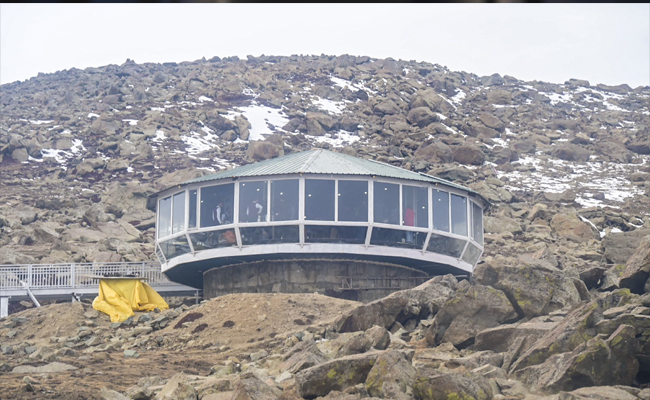New Delhi, Jun 17: Netaji Subhas Chandra Bose had the audacity to fearlessly challenge the British and India would not have been partitioned if he was there at that time, National Security Advisor Ajit Doval said on Saturday.
Doval said Bose was determined to fight the British for India's Independence and never wanted to beg for freedom, adding he not only wanted to end political subjugation but felt that the political, social, economic and cultural mindset of the people has to be changed and "they should feel like free birds in the sky".
The National Security Advisor (NSA) said this while delivering the first Netaji Subhas Chandra Bose memorial lecture organised by the industry chamber ASSOCHAM.
In the course of his address, Doval delved into various aspects of Bose's life and noted that he even had the audacity to challenge Mahatma Gandhi. But at the same time, Doval noted that Bose had a deep respect for Gandhi.
"The seed, the idea that came to his mind was 'I will fight the British, I will not beg for freedom. It is my right and I will have to get it'," Doval said.
"India would not have been partitioned if Subhas Bose was there. Jinnah said I can accept only one leader and that is Subhas Bose," he added.
Doval said Bose's contribution to India is exemplary.
"In Indian history, there are very few parallels or in global history where people had the audacity to sail against the current -- and not an easy current. It was the current of the mighty British empire," he said.
"Netaji said I will not compromise for anything less than full independence and freedom," Doval said.
Netaji said "I want to free this country not only from political subjugation" but felt that the political, social, economic and cultural mindset of the people has to be changed, and "they should feel like free birds in the sky", the NSA added.
"Bose possessed audacity like no other. He had the courage to challenge the prevailing powers, regardless of the consequences. His audacity was evident throughout his life, from his journey to London for the ICS to his escape from India during detention. He displayed unparalleled bravery and determination," Doval said.
Highlighting the legacy of Bose, Doval spoke about Netaji's ability to unite people from diverse backgrounds and how he envisioned a unified and strong India.
"Bose's leadership was exceptional. He recognised India as a reality, transcending divisions of caste, religion, and ethnicity. His vision of a united India is encapsulated in his famous slogan 'Kadam Kadam Badhaye Ja'.
"It resonated with people across all walks of life. He inspired them to fight for their country, united in their pursuit of freedom," Doval said.
The NSA said Bose was a secular person and that he was deeply religious.
Doval said Bose's efforts were driven by his passion for patriotism and his unwavering dream of a great India.
The NSA said Bose was a highly religious man.
"Bose's efforts were monumental, fuelled by his romantic ideals of patriotism and his unwavering hope for a great India.
"History may have been unkind to him, but his impact and nationalism continued even after his passing. He left an indelible mark on the hearts and minds of countless Indians who were inspired by his extraordinary journey," he said.
Let the Truth be known. If you read VB and like VB, please be a VB Supporter and Help us deliver the Truth to one and all.
Bhatkal: Speaker of the Karnataka Legislative Assembly U. T. Khader visited Bhatkal in Uttara Kannada district on Saturday and attended a local cricket match being played as part of a tournament organised by the Cosmos Sports Centre of Bhatkal.
After attending a programme at Anjuman Hami-E-Muslimeen, Khader proceeded to the Bhatkal Taluka Stadium, where the tournament is underway. He was accompanied by office-bearers of the Cosmos Sports Centre and several local community leaders.
Those present during the visit included President of Majlis-e-Islah Wa Tanzeem and former JD(S) leader Inayathullah Shabandri, Vice President of Tanzeem Atiqur Rahman Muniri, General Secretary Abdul Raqeeb MJ, President of Cosmos Sports Centre Ismail Anjum, Managing Director of Mohtisham Complexes S. M. Arshad, former president of the Bhatkal Muslim Youth Federation Imtiyaz Udyawar, among others.
Addressing players and organisers, Khader extended his best wishes to the participating teams and urged the players to uphold the spirit of sportsmanship. He said such tournaments help promote unity and brotherhood among the youth.
The cricket tournament began on November 21 and will conclude with the final match on December 21. It is being organised as part of the golden jubilee celebrations of the Cosmos Sports Centre.
Cosmos Sports Centre is one of the member clubs of the Bhatkal Muslim Youth Federation and is known for its active role in promoting sports in the town. Apart from sporting activities, the centre is also involved in various social and community initiatives, including efforts to promote education among students.


